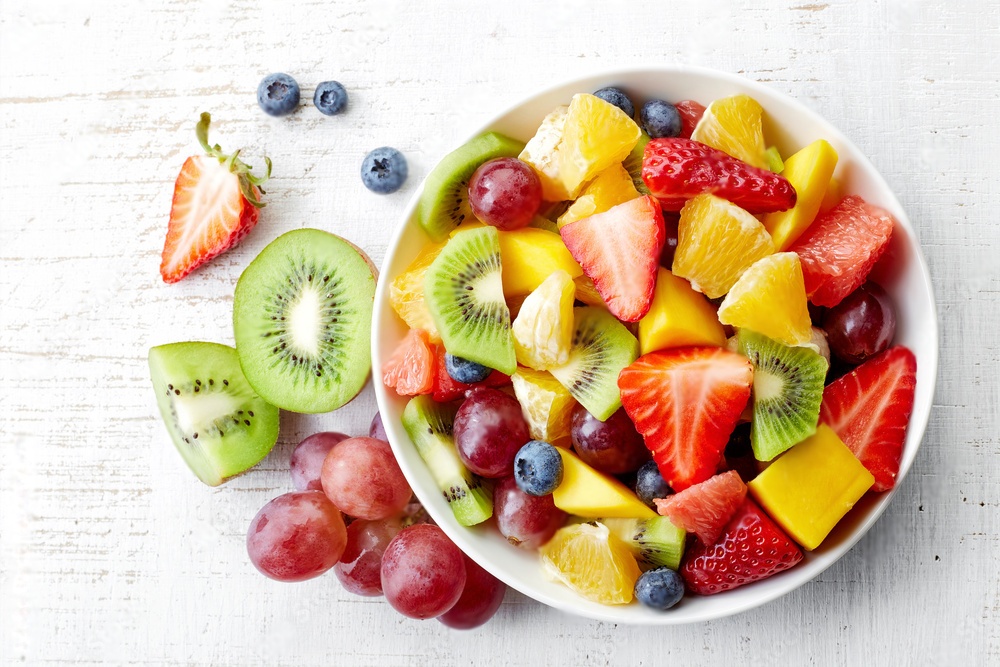In today’s fast-paced world, where processed and convenience foods often take center stage, ensuring our children receive the proper nutrition for optimal growth and development has become more critical than ever. This article delves into the significance of supplementing children’s diets with nutrient-rich fruits and vegetables, exploring the various aspects that contribute to their well-being.
Understanding Children’s Dietary Needs
Children have unique nutritional requirements crucial for their growth and development. A balanced diet not only supports physical health but also plays a pivotal role in cognitive functions and immune system strength. To lay a foundation for a healthy future, it’s essential to comprehend these specific needs.
The Power of Nutrient-Rich Fruits
Delve into the nutritional potency of fruits, where their lively colors and delightful sweetness signify a treasure trove of vital vitamins and antioxidants. Citrus fruits, rich in immune-boosting vitamin C, and berries, celebrated for their cognitive benefits, underscore the importance of introducing a spectrum of fruits into a child’s diet. This approach is pivotal, ensuring a diverse array of nutrients crucial for the child’s comprehensive well-being and growth.

Vegetable’s Vital Contribution
Explore the invaluable contribution of vegetables, frequently undervalued by young palates, yet wielding significant impact in terms of minerals and fiber. Vegetables like broccoli, spinach, and carrots emerge as unsung heroes, actively contributing to a child’s holistic well-being by fortifying the immune system and facilitating efficient digestion. Despite initial reluctance from taste buds, these nutrient-rich vegetables play a crucial role in nurturing a child’s health and ensuring a robust foundation for their development.
Overcoming Picky Eating Habits
Introducing fruits and vegetables to picky eaters can be challenging, but it’s not impossible. Parents can employ creative recipes and engage children in the cooking process to make nutritious meals more appealing. Transforming veggies into fun shapes or incorporating fruits into smoothies are just a few strategies.
The Role of Parents in Encouraging Healthy Eating
Dive into the pivotal role of parents in fostering healthy eating habits. Establishing a positive food environment within the home becomes paramount, as parents who exemplify healthy eating habits significantly shape their children’s dietary choices. Actively involving kids in grocery shopping and meal preparation emerges as a powerful strategy, allowing parents to instill a positive and sustainable relationship with food from an early age. This hands-on approach not only imparts practical knowledge but also cultivates a positive attitude towards nutritious choices that can last a lifetime.
Nutritional Education in Schools
Promoting nutritional education in schools is essential for shaping lifelong habits. Collaboration between parents and educators ensures a comprehensive approach to teaching children about the importance of a balanced diet.

Addressing Common Concerns
Unraveling the misconceptions that surround children’s nutrition holds paramount importance. Offering well-grounded answers to prevalent queries, such as addressing worries about sugar consumption or the perceived necessity of opting for organic produce, serves as a guiding light for parents in making well-informed choices. By basing decisions on evidence-backed information, parents are empowered to navigate the intricacies of children’s dietary needs, fostering a healthier and more informed approach to nourishing their little ones.
Budget-Friendly and Accessible Options
Embarking on a journey of healthy eating doesn’t necessarily mean draining your wallet. Shedding light on cost-effective and readily available fruits and vegetables, coupled with tailored strategies for families navigating a tight budget, guarantees that every child can access nutritious options. By emphasizing affordability and providing practical tips, this approach strives to make wholesome, nutrient-rich choices within reach for all families, promoting a balanced and budget-conscious approach to children’s nutrition.
Sustainable Eating for Future Generations
Beyond personal health, it’s crucial to consider the environmental impact of food choices. Encouraging sustainable and locally sourced options not only supports local economies but also fosters a sense of responsibility for the planet.
Recognizing Growth Milestones
Vigilantly tracking the growth and development of children involves a collaborative partnership between parents and healthcare professionals. Routine check-ups play a pivotal role in promptly identifying and addressing potential nutritional deficiencies or concerns related to growth. This joint effort ensures that any challenges are tackled proactively, allowing for timely interventions that contribute to the overall well-being and healthy development of the child. Regular check-ups serve as a crucial tool in the arsenal of preventive healthcare, fostering a proactive approach to addressing potential health issues before they become more significant concerns.
The Link Between Nutrition and Cognitive Development
The well-established link between a nourishing diet and cognitive abilities underscores the profound impact of what we eat on our mental prowess. Nutrient-rich foods, particularly abundant in fruits and vegetables, play a pivotal role in elevating brain function and bolstering academic success. Recognizing the importance of these foods in enhancing cognitive capabilities reinforces the notion that a wholesome diet isn’t just vital for physical health but is equally instrumental in nurturing the intellectual potential of individuals, particularly children, contributing to their overall academic achievements.
Importance of Regular Health Check-ups
Routine medical check-ups stand as a cornerstone in the realm of preventive healthcare. The early detection and timely addressing of nutritional deficiencies during these check-ups serve as a crucial preventive measure, warding off a spectrum of potential health issues. This underscores the critical significance of adhering to routine health assessments, emphasizing their role in proactively safeguarding an individual’s well-being by identifying and mitigating health concerns before they escalate. Regular check-ups thus emerge as a pivotal tool in the pursuit of holistic health, promoting a proactive approach to maintaining and optimizing one’s overall well-being.
Building Healthy Habits for a Lifetime
The impact of childhood nutrition extends far beyond the early years. Establishing healthy eating habits in childhood lays the groundwork for a lifetime of well-being. Children who learn to appreciate and enjoy nutritious foods are more likely to carry these habits into adulthood.
Conclusion
In conclusion, the importance of supplementing children’s diets with nutrient-rich fruits and vegetables cannot be overstated. These foods not only provide essential vitamins and minerals but also contribute to overall well-being, from physical health to cognitive development. By understanding children’s dietary needs, overcoming picky eating habits, and fostering a positive food environment, we can ensure that our children grow and thrive.
FAQs
- Q: Can I rely solely on supplements for my child’s nutrition? A: While supplements can be beneficial, it’s crucial to prioritize whole foods like fruits and vegetables to ensure a well-rounded and diverse nutrient intake. Supplements should complement, not replace, a balanced diet.
- Q: How can I encourage my child to eat more vegetables? A: Make vegetables fun! Experiment with different cooking methods, offer a variety of colorful veggies, and involve your child in the meal preparation process. Turning veggies into a creative experience can make them more appealing.
- Q: Are organic fruits and vegetables worth the extra cost? A: While organic produce may have fewer pesticides, the most important factor is getting a variety of fruits and vegetables into your child’s diet. If budget constraints are a concern, prioritize buying organic for items on the Environmental Working Group’s “Dirty Dozen” list.
- Q: What role do fruits and vegetables play in preventing childhood obesity? A: Fruits and vegetables are low in calories and high in fiber, promoting a sense of fullness. Incorporating them into meals helps control overall calorie intake and contributes to a healthy weight, reducing the risk of childhood obesity.
- Q: How can I ensure my child gets a balanced diet on a vegetarian or vegan lifestyle? A: Plan meals that include a variety of plant-based proteins, whole grains, fruits, and vegetables to ensure your child receives essential nutrients. Consider consulting with a pediatrician or nutritionist to address specific dietary needs.



